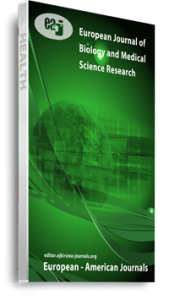Introduction. The use of dietary supplements has recently increased worldwide. Because of non-communication, however, patients often do not disclose their dietary supplements use to their physicians. Danger exists because physicians give orthodox medications to patients who may be using supplements already in an attempt to promote health, prevent or treat diseases. Objective. The objective of this study was to describe the scope of concomitant use of dietary supplements and orthodox medicines among primary care patients due to non-communication with physicians in a tertiary hospital in Uyo, Nigeria. Method. This was a prospective descriptive cross-sectional study involving 573 respondents conducted between September 2014 and February 2015. Using a systematic sampling technique, respondents aged between 18 and 69 years were recruited, data were collected using a structured interviewer-administered questionnaire. Result. Of the 573 respondents recruited into the study, 62.2% (n=356) used dietary supplements; made up of 43.0 %( n=246) females and 19.2 %( n=110) males. Frequency of dietary supplements use was seen to increase with age 16.1%(n=92), among the more educated 43.3%(n=248), and among high level income earners,26.4%(n=151).Herbs or other botanicals were the most preferred supplements,37.1%(n=132).The patterns of concomitant dietary supplements and orthodox medicine use were as follows: one kind of supplement and one medicine,21.3%(n=76),two kinds of supplements and four medicines,6.7%(n=24), three kinds of supplements and more than four kinds of medicine,5.3%(n=19),more than four kinds of supplements and more than four kinds of medicines,5.6%(n=20).The commonest reason given for not disclosing dietary supplements use to physicians was that physicians never asked(p=0.001). Conclusion. In conclusion, concomitant use of dietary supplements and orthodox medicine is common among primary care patients in uyo.Primary care physicians need to be more pains-taking in their interactions with patients to forestall any adverse event that may arise following the prescription of orthodox medicines to patients that are already taking dietary supplements.
Keywords: Concomitant Dietary, Dietary Supplements, Orthodox Medicine, Patients, Tertiary Hospital, Uyo Nigeria

